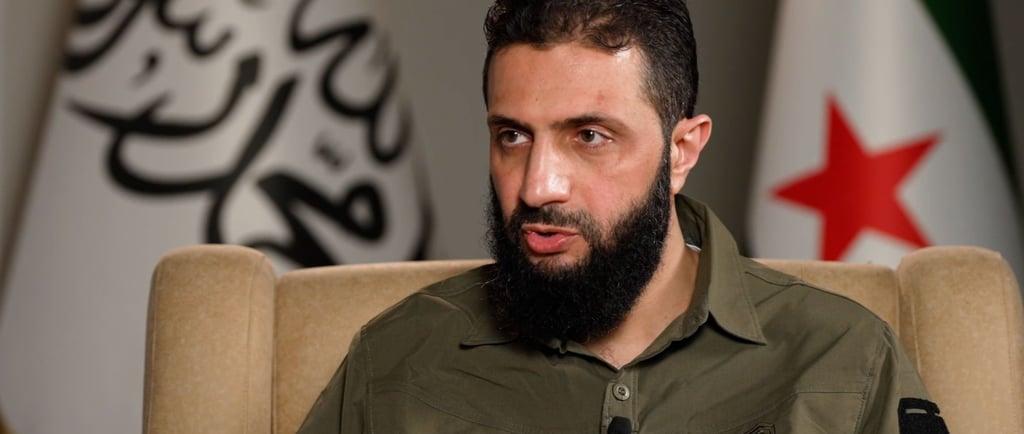Syria: Mohammed Al-Jawlani and Rebranding Syria
Following the collapse of the Assad regime, Abu Mohammad al-Jawlani has emerged as the central figure in Syria’s reimagining. As the architect of the opposition's final push, can his leadership navigate the nation through its fractured political landscape and establish a stable post-war order?
SYRIA
Aisulu Sarmanova
12/22/20243 min read


On 8 December 2024, a significant offensive by opposition forces culminated in the capture of Damascus, leading to the collapse of the Assad regime and the conclusion of the Syrian civil war, which had begun in 2011. The offensive was spearheaded by Tahrir al-Sham under the leadership of Abu Mohammad al-Jawlani, with substantial support from the Turkish-funded Syrian National Army. Al-Jawlani, emerging as a central figure in the reshaping of post-Assad Syria, swiftly moved to consolidate his leadership, presenting himself as the architect of Syria's new direction.
Al-Jawlani's leadership marks a profound shift in Syria’s governance, which had been dominated by the Assad family’s hereditary, sectarian despotism since 1971. His ascent to power signals the end of nearly five decades of Ba’athist rule and ushers in a new era defined by his vision for a unified and rebranded Syria. By positioning himself as a reformist leader with Islamist roots, al-Jawlani seeks to transform his reputation from a militant commander to a statesman capable of rebuilding the war-torn nation.
Since taking power, al-Jawlani has rebranded Syria as a state poised for reconstruction, economic growth, and regional cooperation. In his first address as leader, al-Jawlani emphasised the importance of national unity, the rebuilding of infrastructure, and the creation of a governance structure rooted in Islamic principles but open to collaboration with international stakeholders. This rebranding aims to distance his leadership from the fractured insurgencies of the past and present Syria as a stabilising force in the Middle East.
Al-Jawlani’s administration has prioritised economic recovery, with plans to modernise infrastructure, expand agricultural output, and revitalise Syria’s industrial base. The leader has invited foreign investments, particularly from Turkey and Gulf states, while highlighting the importance of partnerships with international businesses specialising in construction, technology, and renewable energy. By emphasising the economic potential of Syria, al-Jawlani seeks to attract funding and expertise to aid in rebuilding cities devastated by over a decade of war.
Under al-Jawlani’s leadership, Syria is experiencing a recalibration of its geopolitical alliances. Turkey, a key supporter of the opposition forces, has emerged as a primary partner, facilitating investments and advising on governance reforms. This alliance signals a departure from Syria’s historic reliance on Iran and Russia, as al-Jawlani looks to align the country more closely with Sunni-majority states and Western-aligned nations. Turkish officials have indicated their commitment to aiding in Syria’s stabilisation, with Ankara playing a pivotal role in mediating between factions within the country.
In addition to Turkey, Gulf nations, including Qatar and Saudi Arabia, have expressed interest in contributing to Syria’s reconstruction. These nations see opportunities to expand their influence in a post-Assad Syria and to counterbalance Iranian interests in the region. Al-Jawlani has also sought to normalise relations with Western nations by promising reforms, counterterrorism cooperation, and respect for human rights, though his past affiliations with extremist groups continue to raise concerns internationally.
While al-Jawlani’s leadership presents opportunities for economic and political renewal, significant challenges remain. Security concerns persist, as remnants of the Assad-era military and rival factions could destabilise the fragile peace. Regulatory uncertainty and the nascent nature of the new governance structure pose additional risks for international investors.
Despite these challenges, al-Jawlani has outlined an ambitious vision for sustainable development, focusing on infrastructure modernisation, renewable energy projects, and technological innovation. His administration is also promoting microfinance initiatives to support entrepreneurship, particularly in agriculture and small-scale manufacturing, which have traditionally been pillars of Syria’s economy. By empowering local businesses and encouraging foreign direct investment, al-Jawlani aims to create jobs and foster long-term stability.
The fall of the Assad regime and the rise of al-Jawlani represent a transformative moment in Syria’s history. The new leadership’s commitment to rebuilding and modernising the nation offers hope for a stable and prosperous future. By forging new alliances and embracing economic openness, Syria stands to emerge as a more dynamic and reliable partner in the Middle East. However, the success of this transformation will depend on the ability of al-Jawlani’s administration to navigate the complex political landscape, maintain security, and deliver on promises of inclusive development.
As Syria begins this new chapter, the international community—governments, businesses, and non-governmental organisations alike—has a critical role to play in supporting the country’s recovery. With strategic investments and partnerships, Syria has the potential to rebuild not only its infrastructure but also its social and economic fabric, laying the foundation for a brighter future under al-Jawlani’s leadership.


